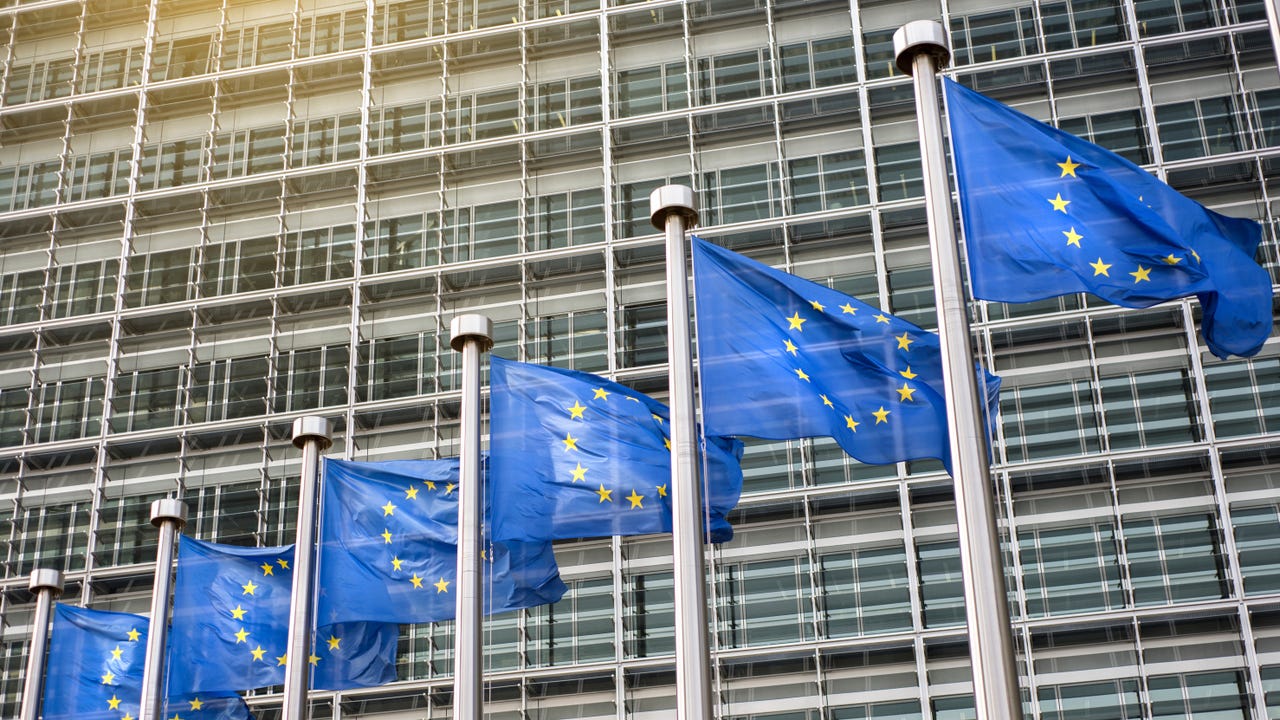EU to Skype, WhatsApp: You'll have to support emergency calls under new rules


Europe hopes the new proposals will also lay the groundwork for 1Gbps internet speeds, with more public-access Wi-Fi, and 5G in at least one major city in each member state by 2020.
The European Commission has released new proposed telecoms rules that aim to extend the same regulations that telcos already face to services such as WhatsApp and Skype.
Europe hopes the new proposed rules will also boost investment in mobile and broadband networks across the continent and lay the groundwork for 1Gbps internet speeds. It is aiming for more public-access Wi-Fi, and 5G in at least one major city in each member state by 2020.
Tech Pro Research
The proposals cover use of spectrum for mobile broadband, consumer protections, and a requirement for services such as Facebook's WhatsApp and Microsoft's Skype, which use the normal numbering system, to support emergency 112 calls.
It has proposed new copyright rules, which give news publishers the right to negotiate how online services, such as Google, use their content. YouTube will also face new rules regarding copyright takedowns and payments to rightsholders.
The copyright update will also allow consumers to view TV content across borders by making it easier for broadcasters to obtain rights to show programs in other EU states. It is aimed at online catch-up services such as the BBC's iPlayer.
The new EU Electronic Communications Code sets a goal of delivering 100Mbps broadband speeds to all households by 2025, with the ability to upgrade to 1Gbps at an unspecified time.
It also aims to achieve 1Gbps for enterprises, schools, transport hubs and public service providers by 2025. The EU isn't ruling out the use of copper but notes the benchmark for a "very high-capacity network" is the performance of fiber running close to the home.
The proposed telecoms update follows lobbying by European telecoms operators to even the regulatory playing field with online tech firms.
For example, as the Wall Street Journal reported earlier this year, telecoms firms complained that privacy rules prevent them from selling location-based advertising, while Facebook and Google are free to do so.
Representing European carriers, the European Telecommunications Network Operators' Association (ETNO) today welcomed the new code as an "important reform of Europe's outdated telecoms laws".
The Computer & Communications Industry Association (CCIA), which represents Amazon, Microsoft, Google, and Facebook, said the new rules contradict Europe's single-market goals and may force some free online communications services out.
"By including online communications services in the scope of these sorts of telecoms rules, the Commission will fragment the market with 28 sets of rules to be followed rather than one," CCIA Europe vice president James Waterworth said.
"This is the opposite of its stated objective. It may also drive some popular communications options out of the market, reducing competition and preventing the release of new features in Europe," he added.
MORE ON INTERNET PROVIDERS AND TELECOMS
- Has your internet provider been compromised? Malicious insiders are helping cybercriminals hack telecoms firms
- With smart home apps, consumers prefer service providers do all the work
- Lack of cash threatens to cut off Venezuela from the Internet
- What would you do for an internet connection?
- Samsung to place $1.2 billion U.S. R&D bet on IoT
- TechRepublic: IoT hidden security risks: How businesses and telecommuters can protect themselves
- CNET: Facebook launches its unmanned solar-powered internet service provider